If you’re an A level history teacher, you’ll know that new draft specifications have just been published by exam boards to accommodate government changes to the teaching of history A Level from 2015. [ref]1. AQA, Edexcel, OCR and Eduqas, plus the government guidance for the new changes to A level history, which were published in April 2014 [/ref] But perhaps you don’t know where to find interesting documentary sources for use in the classroom?
The answer is simple: use the documentary sources freely available on the education pages of The National Archives’ website. All of our sources have transcripts, and in some cases audio recordings, simplified transcripts and glossaries. Our themed document collections can easily be downloaded for classroom use in one zip file. We provide the whole primary source where possible, not a sanitised extract, which suits the new emphasis on study of more extensive documents at A Level from 2015.
Our resources offer an enquiry led approach using primary sources, so we are very well placed to support, topic permitting, many of the history period studies, enquiry questions and the personal study element (historical investigation) for all exam boards offering these means of assessment. In addition, we offer some online materials to help history students develop their understanding of the concept of evidence and carry out research for a personal study, extended coursework essay or historical themed Extended Project Qualification.
We also provide help for study skills in terms of essay writing and revision. Professional development for teachers is one our strengths and we have developed an online learning module for teachers about working with primary evidence in the classroom.
So whoever your exam board is, our content can be used to support the history specifications provided by AQA, Edexcel, OCR and Eduqas (WJEC qualifications to schools and colleges in England) for A Level. Of course our education website can’t promise to cover every single period of history you might choose to teach, but you can also search for your own documents using Discovery, our online catalogue for our collection of over 11 million documents.
20th century
Starting with 20th century British history, which is covered by all the exam boards, we can help. For instance, we offer a website on the varied life of the British people in 1906-18. This is explored through a number of original case studies on the Liberal reforms, the suffragette movement and life on the home front during the First World War.
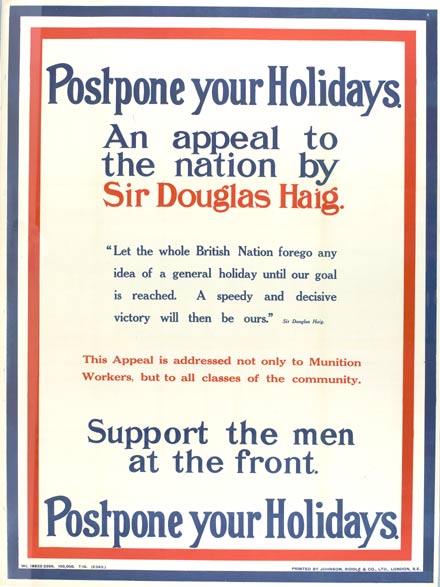
A government poster from July 1916 urging industrial workers to postpone their holidays to help the war effort (EXT 1/315 pt10).
For those studying the outbreak, course and impact of the First World War, take a look at the sources contained in our Great War online exhibition.
Thirties Britain: the depressed decade? supports those specifications featuring the 1930s, a decade often portrayed solely as a time of unemployment, hunger marches and extreme politics. Juliet Gardiner, historian of the period in her introduction to this collection considers the accuracy of this view. Students can work with these documents to carry out their own investigations.
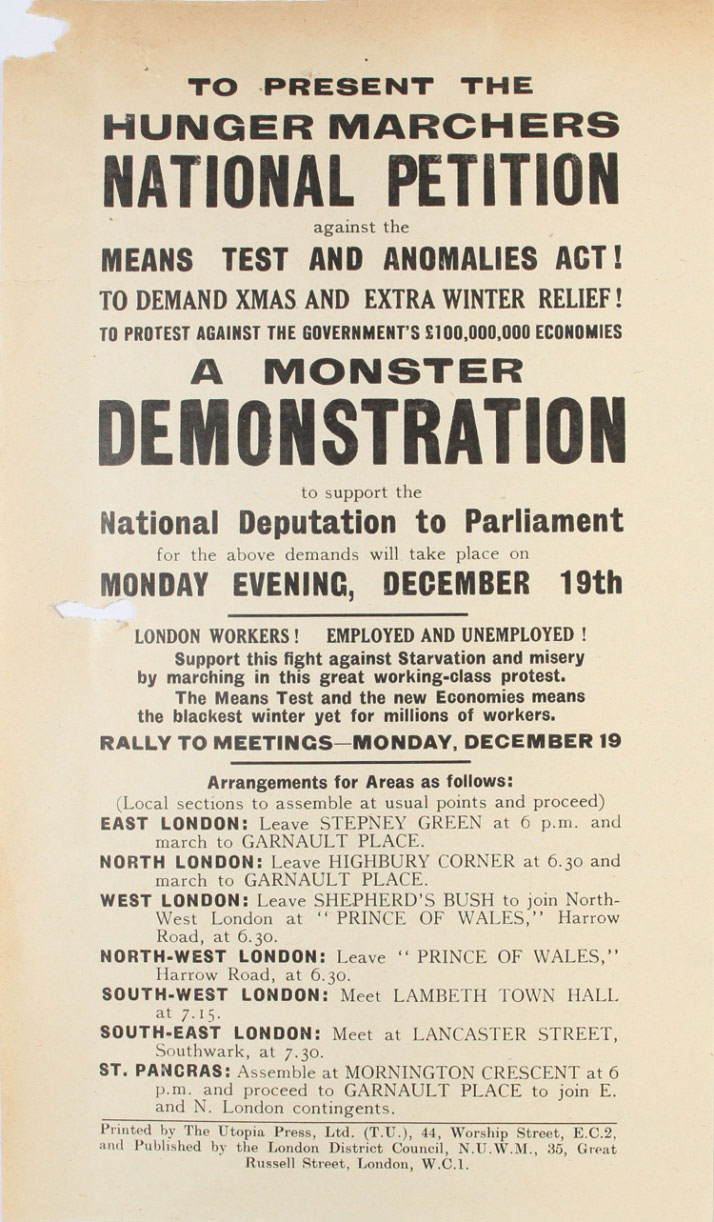
Protest pamphlet for hunger marchers against the Means Test, 19 December 1932 (HO 144/18187)
Attlee’s Britain:Planning for the future? is a group of 40 documents on the birth of modern Britain, covering introduction of the welfare state, the foundation of the National Health Service, and the wide nationalisation of industries. The documents highlight post-war issues, such as rationing and the housing shortage after the Blitz. The resource has an introduction by historian Robert Crowcroft.
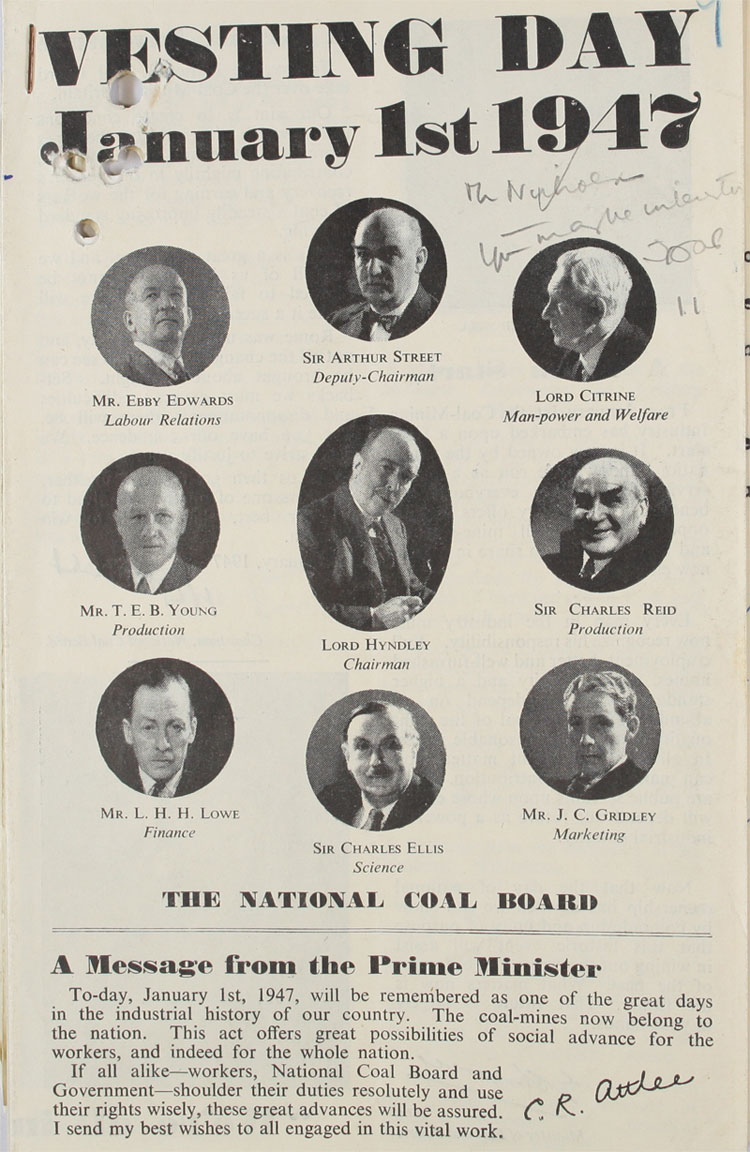
The nationalisation of coal, 1 January 1947 (CAB 21/2207)
We have a similar collection of documents from the 1950s: Fifties Britain, too good to be true? Finally, for those teaching the sixties, there is a document collection introduced by historian Dominic Sandbrook called Sixties Britain: A social and cultural revolution? Here you’ll find a wide range of sources including letters written by Mary Whitehouse to the BBC and Harold MacMillan commenting on the Profumo affair.
For those studying Race Relations and Civil Rights in the USA, we have the resource Civil Rights in America, which charts the struggle through archival material that relates to protests, racial tension and the state and federal government response to calls for equal rights for black Americans in the 1950s and 1960s. Some additional documents on Martin Luther King can be found in Heroes and Villains.
Cold War is packed with original documents on the origins, course and turning points in the cold war and highly relevant to anyone studying the topic.
We also have primary sources available for those teaching Stalin in the 1920s and 1930s as part of the unit on dictatorship in USSR, or those covering Kennedy and Truman for units on the USA in the 20th century.
Teaching colonialism to independence in the British Empire? You’ll find a wealth of sources in our online collection Road to Partition 1939-47, plus a collection of oral testimonies in Panjab 1947: A heart divided.
Quick easy access to a 20th century film collection is provided by our Focus on Film website, and the British Cabinet Papers 1915 are available.
18th century
As far as 18th century history is concerned we have two new collections highlighting 70 documents on the Jacobites. Both the ’15: Rebels with a cause? and the ’45: A serious threat to the Hanoverians? collections are introduced by historian Daniel Szechi.
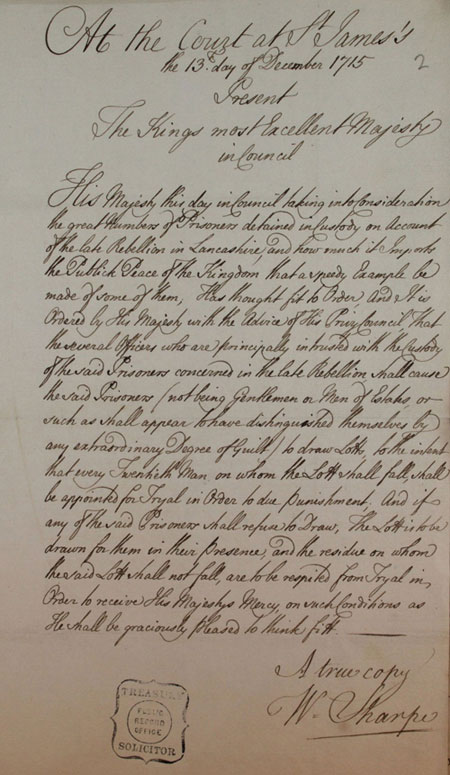
A royal order about Jacobite prisoners in the aftermath of the 1715 Jacobite rebellion ( TS 20/44).
We’re currently cataloguing the State Papers of George I and George II, meaning it will soon be possible search them using our online catalogue. Those studying the growth of political rights from the 18th century, protest, democracy and reform there is original source material in People, Politics and Protest.
17th century
Those specifications covering the early Stuarts and the Civil War are served by our website on the Civil War. Whilst the website is targeted to a Key Stage 3 audience, A Level students can still work with the substantial number of sources including the trial document of Charles I (catalogue reference: SP 16/517).
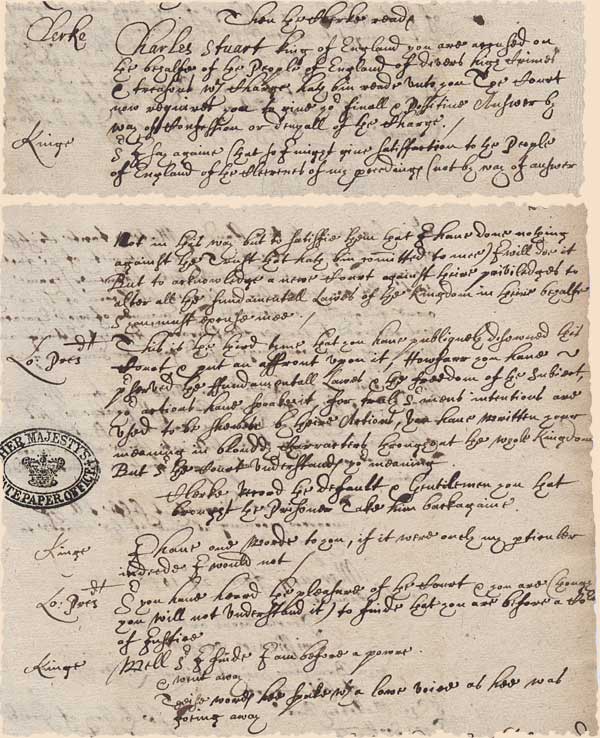
The trial document of Charles I.
Finally, students can take part in our free onsite workshops and answer an enquiry question using original documents, or interact in a live virtual session led by an Education Officer.
So if you are looking for some documents to help develop your own enquiry questions, or you wish to introduce your students to source material to support a period study or inspire them to start their research for a personal study, come and raid our education pages!
[…] Calling all A Level history teachers […]
We are currently teaching the new Tudors specification with AQA. Do you have online collection pertaining to this topic?